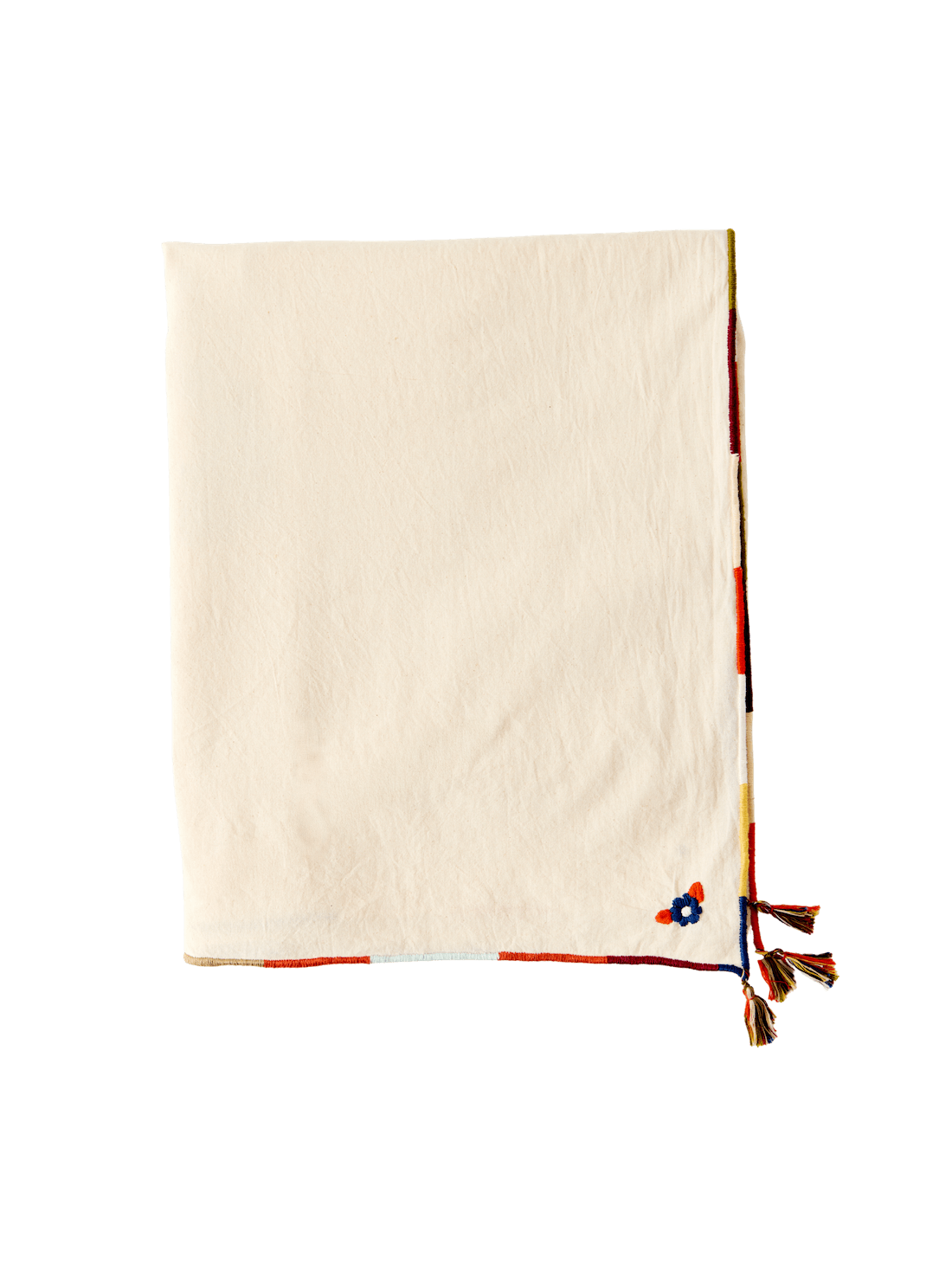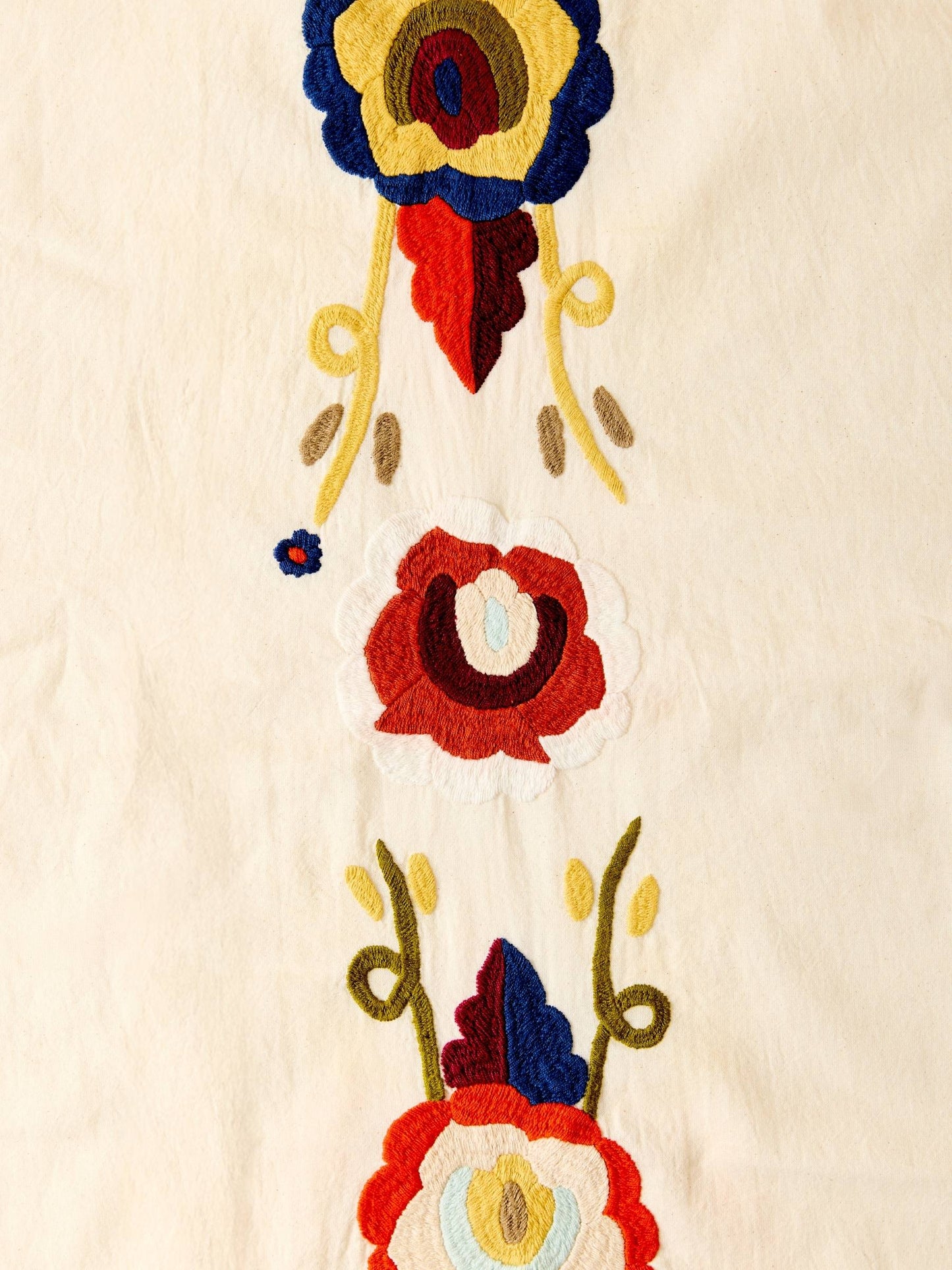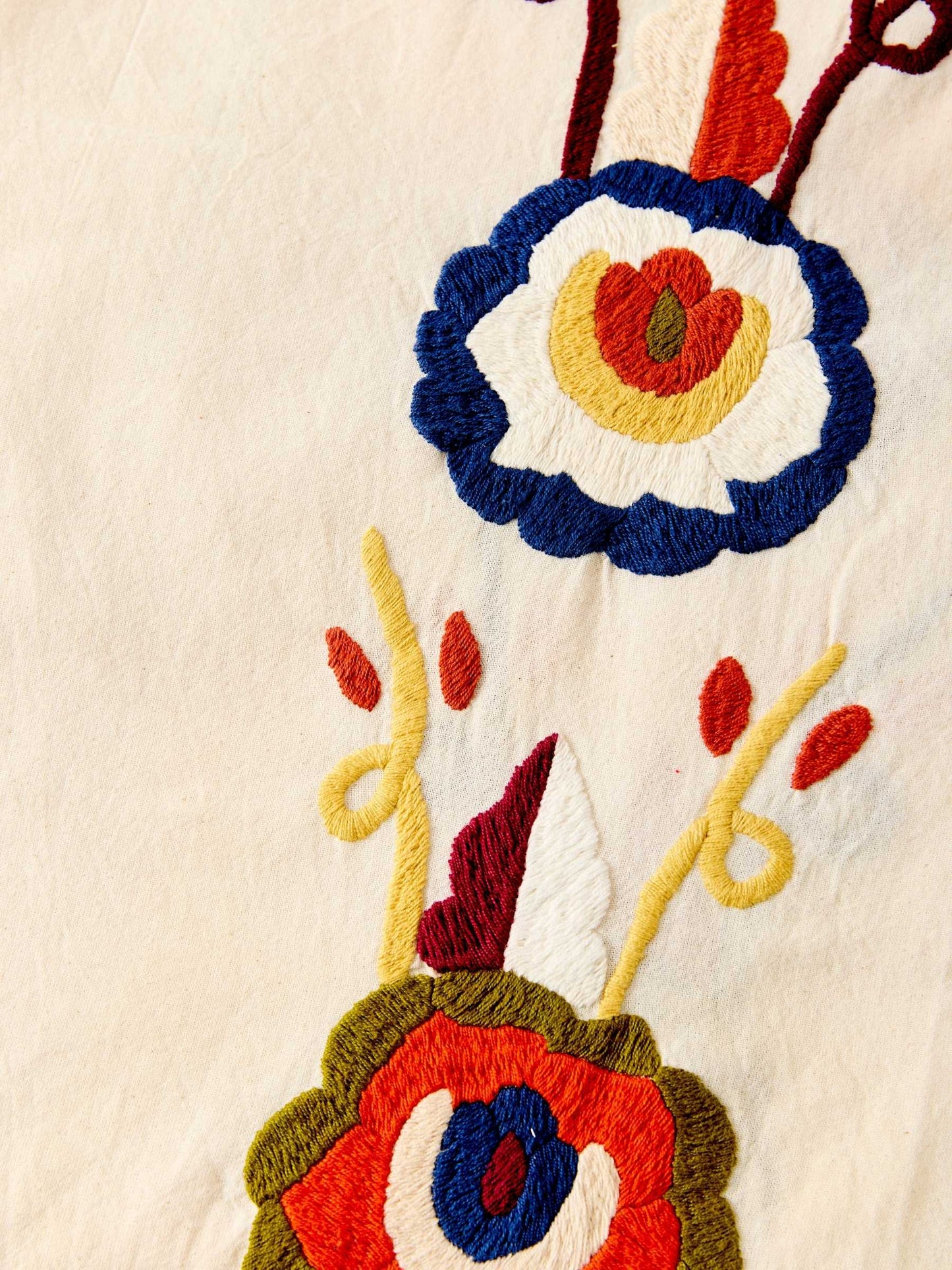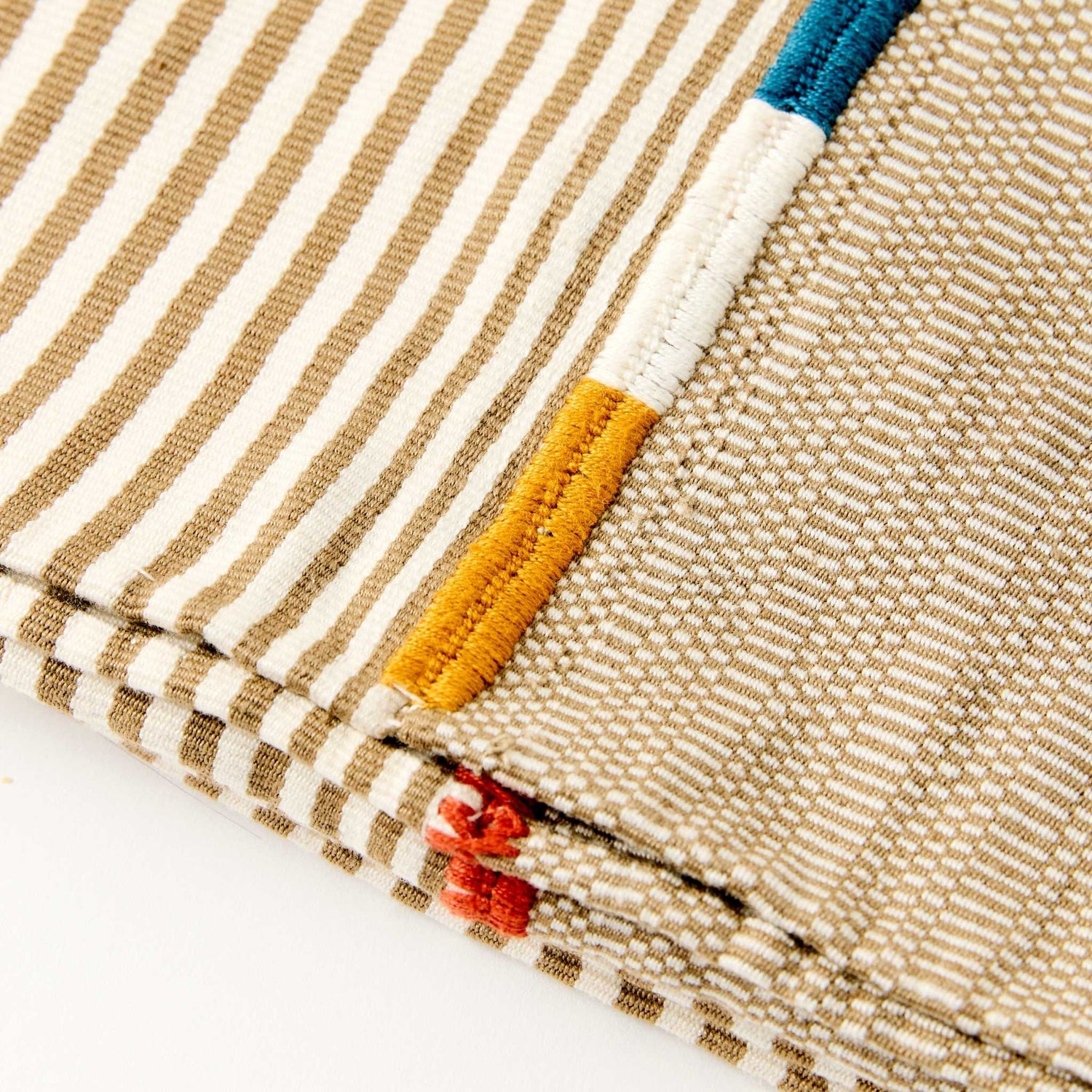Esas Mesas
Textile Mica en el Jardín Santiz – Handwoven Embroidered Cotton Textile from Chiapas
Textile Mica en el Jardín Santiz – Handwoven Embroidered Cotton Textile from Chiapas
Couldn't load pickup availability
The Textil Mica en el Jardín Santiz is a vivid expression of Chiapas artistry. Woven on a traditional backstrap loom and brought to life with intricate embroidery, each textile is a canvas of cultural memory. The motifs — flowers, plants, and symbolic designs — reflect stories of nature and daily ritual, stitched patiently by hand with multicolor threads.
Its generous scale makes it versatile: draped as a table covering, hung as a wall textile, or layered in the home as a statement piece. Every textile takes weeks to complete, carrying forward generational knowledge, patience, and artistry. The result is not only a functional object, but also a living artifact that celebrates the continuity of Indigenous craft.
Product Details
Product Details
100% Cotton, with natural dyes and embroidery threads
Natural cotton base with multicolor embroidery
120 x 240 cm
Handwoven in Chiapas, Mexico
Artisan Information
Artisan Information

Maintenance & Care
Maintenance & Care
Hand wash gently in cold water with mild soap. Do not bleach. Line dry in shade. Iron on reverse side with low heat.
Share




About the Region
Made in Collaboration with Colorindio & Artisans from Pantelhó, Chiapas
Based in Mexico, this textile collective is dedicated to preserving and elevating Indigenous weaving traditions. Founded with the mission of sustaining artisan communities, it works directly with weavers in Chiapas, Oaxaca, and the Yucatán. Families continue centuries-old techniques, weaving on backstrap and pedal looms and dyeing threads with natural pigments like indigo, cochineal, and local plants.
Each piece carries with it ancestral stories, rituals, and daily life. Depending on scale and complexity, a single textile can take weeks or even months to complete. The rhythm of weaving echoes the values of patience and care. By working exclusively with natural fibers and dyes, these communities honor both the environment and the integrity of traditional techniques.


